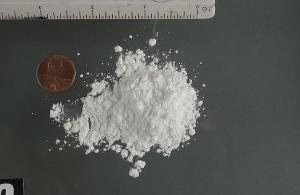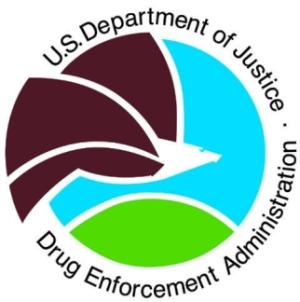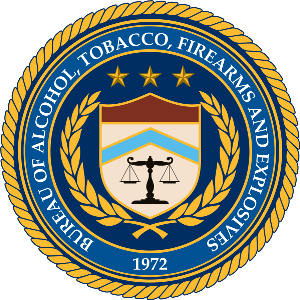Here is Douglas Greene with a first-hand account of an ibogaine conference in Durban, South Africa. Read about the challenges facing the plant and the cutting edge science behind its use in opiate addiction treatment.
Operation Gideon, in which the ATF,and sometimes, the DEA, set up fake drug stash house robbery stings, is raising questions about entrapment and racially-targeted law enforcement. Here's part one of a series on it from Clarence Walker.
Advocates of drug testing people poor people lost another battle today as the USDA told Georgia its law mandating drug tests for some food stamp recipients violates federal policy and cannot be implemented.
Just hours after CBP Commissioner Gil Kerlikowkse announced new use of deadly force policies aimed at reducing killings by agents, a Border Patrol agent shot and killed a fleeing marijuana smuggler.
In an historic vote, the House tells the DEA and Justice Department to butt out of medical marijuana states, limited CBD medical marijuana bills are signed into law in Iowa and South Carolina, Minnesota becomes the 22nd medical marijuana state, one bill to regulate medical marijuana in California is still alive, and more.
A 29-year-old Tampa man was shot and killed by a police SWAT team as it raided his home after undercover officers made marijuana purchases there. The cops said he pointed a gun at them.
More cops with prescription pill problems, more jail guards tempting fate. Just another week in drug war police corruption.
Minnesota becomes the 22nd medical marijuana state, the California Senate passes a medical marijuana regulation bill and a bill equalizing crack and powder cocaine offenses, a new study reports on who current heroin users are, there are a series of votes set for today to rein in the DEA, a Canadian court allows heroin-assisted treatment trials to move forward, and more.
Yesterday was a bad day for the DEA as the House thrice voted to slap its hands, an anti-marijuana initiative in Montana gets okayed for signature-gathering, the New York Senate releases a report on heroin and opiate addiction and calls for more drug war, marijuana legalization supporters rally in Tel Aviv, and more
A Nevada marijuana legalization initiative picks up a key endorsement, Iowa joins the ranks of the CBD medical marijuana states, Tennessee's governor gets ready to roll out a new plan to address prescription drug use, thousands march for legalization in Santiago, Chile, the Peruvian president backs away from forced coca eradication, and more.
That Georgia drug raid last week that left a toddler seriously burned and in a medically-induced coma continues to spark outrage, the DC pot possession and cultivation legalization initiative is half-way there, New York's governor signs a deal for CBD medical marijuana trials that critics say isn't nearly enough, a former Brooklyn DA is in hot water of misusing seized drug money, and more.
Legendary chemist Alexander Shulgin has died, the fight for medical marijuana in New York continues, Chicago sues Big Pharma over prescription opiates, Britain's black police association wants a look at legalization in the US, pot politics continues to get big play in Bermuda, and more
special to Drug War Chronicle by Douglas Greene
Three dozen ibogaine providers, researchers and advocates gathered from May 7-10 in Durban, South Africa for the 4th International Ibogaine Provider's Conference, sponsored by the Global Ibogaine Therapist Alliance (GITA).

Yann Guignon and Jean-Nicolas Denarie with several varieties of iboga fruit (Sarita Wilkins)
The cover of the conference program guide and report features
Esu, a deity in several religions with a multitude of responsibilities, including protecting travelers, roads (particularly crossroads), power over fortune and misfortune, and the personification of death. The illustration was highly apropos -- 52 years after
the discovery of ibogaine's interrupting effects on opioid use disorders by
Howard Lotsof, the father of the modern
ibogaine movement,
ibogaine advocates and providers are at an existential crossroads, with serious concerns about sustainability, safety and efficacy.
The last GITA conference was held in October 2012 in the harm reduction heaven of Vancouver, Canada. For this conference, GITA wanted to get back to the medicine's root -- iboga, a rainforest shrub native to West Central Africa that is sacred to practitioners of the Bwiti religion. After years of ibogaine's increasing popularity to treat Westerners with substance use disorders, iboga is under intense ecological pressure, and could be extinct in its native habitat of Gabon by late 2016, according to Yann Guignon, who wrote a report on the status of iboga for the Gabonese government in 2011-2012.
Guignon comes from an unusual background. He was born in France, but has been in Gabon since 2006, when he was initiated in the Dissumba branch of Bwiti. In 2007, France banned iboga after a death that had only an incidental connection to iboga.
Guignon gave the attendees a full report on the parlous state of the plant. "Over 90% of the iboga has disappeared from the country," Guignon said, and what it left is unaffordable -- the price of iboga has risen tenfold in less than decade. A bottle of 300 grams of medium quality root bark costs 100 euros (about $136), in a country where the 30% of the population that is employed has a minimum salary of 120 euros (about $163) per month.
There are also many factors endangering the supply of iboga: increasing land development and urbanization, the growing political and social power of evangelical Christians and climate change. As a result, "fake iboga" is now being marketed as iboga root bark and causing fatalities due to its cardiotoxic effects. And some Bwiti have started using alcohol instead of iboga in their ngenza (practice).
In response to these formidable threats to iboga's future, GITA and Guignon are taking action. GITA has proposed undertaking a collaborative effort with the Ethnobotanical Stewardship Council to launch the Iboga Dialogues, a multi-stakeholder engagement process to develop fair trade and safety standards for global use of iboga and ibogaine. Meanwhile, Guignon and his associate Jean-Nicolas Dénarié have started a few plantations on private land, and are in discussions with the Gabonese government to develop a plantation in one of Gabon's national parks, with the eventual goal of having a plantation in each of Gabon's 13 national parks.
Concerns about safety have been part and parcel of ibogaine's history as a drug detox. It's not just potent psychologically (about 75% of people treated experience intense personal and transpersonal visions -- not hallucinations, as often described in erroneous media reports). On a physiological level, it can produce bradycardia (a slow heartbeat) and/or arrhythmias (irregular heart rhythms). Last year alone, four of the 12 citations for ibogaine on the medical database PubMed were about deaths and toxicity. And rumors of deaths at clinics (as well as sexual assaults and thefts of intellectual property) have served to undermine the disorganized and reputationally disadvantaged ibogaine subculture.

GITA Development Director Jonathan Dickinson discussing GITA's vision (Sarita Wilkins)
However, some pioneering providers are attempting to improve ibogaine's safety profile, not just by taking what should be common sense precautions (using medicine that has been tested for purity,
extensive medical screening and monitoring of treatments by qualified medical professionals), but by using
cumulative, low dose psycholytic protocols that include
iboga root bark, TA (an extract that includes all twelve alkaloids found in the plant) and ibogaine hydrochloride.
According to Clare Wilkins, Director of Pangea Biomedics, this approach has several advantages over the standard practice of using a flood dose of ibogaine hydrochloride: it uses scarce iboga more efficiently, and allows for treatment of high-risk individuals who are normally excluded from ibogaine treatment. Most importantly, it allows clients to be conscious and gradually integrate the insights they glean about their substance use disorders into their awareness and daily practices.
Safety practices were also discussed by Kenneth Alper, MD, an associate professor of psychiatry at the NYU Langone Medical Center and Jeffrey Kamlet, M.D., FASAM, a Miami Beach-based specialist in addiction medicine, both during the conference and in a post-conference seminar devoted to provider discussion of treatment protocols and practices. Topics included patient electrolyte levels (the "number one problem in treatment" according to Kamlet), treatment of bradycardia and withdrawal from Suboxone, methadone and alcohol prior to treatment.
Although there's been an enormous amount of anecdotal evidence for ibogaine's efficacy, there has been a lot more popular media than medical articles about ibogaine (including a few stories after the death of actor Philip Seymour Hoffman and a major Al Jazeera piece that aired shortly after the conference). Consequently, most major drug policy reform organizations have remained silent on ibogaine. Even the Drug Policy Alliance, which honored Lotsof in 2009 just before his death with its Robert C. Randall Award for Achievement in the Field of Citizen Action, offers only a tepid endorsement of ibogaine research. ("Our take on ibogaine is that is shows interesting potential to assist some people in recovering from substance dependence. It should be more widely researched," says DPA harm reduction manager Meghan Ralston.)

Pangea Biomedics Director Clare Wilkins discussing her cumulative low-dose protocol (Sarita Wilkins)
Despite ibogaine being an oneirogenic (a substance that produces dream states) rather than a psychedelic,
MAPS (the Multidisciplinary Association for Psychedelic Studies) has emerged as a major institutional supporter of ibogaine research. MAPS Founder and Executive Director
Rick Doblin has spoken enthusiastically about
his experience with ibogaine, and MAPS is currently collecting data for
two observational studies of ibogaine's long-term efficacy in treating opioid dependence at clinics in Mexico and New Zealand. The lead researchers for these studies presented the assembled iboganauts with the latest updates.
Thomas Kinsgley Brown, PhD of the University of California, San Diego, reported on the preliminary results of the Mexico study. Data entry for the study was completed in April. According to Dr. Brown, "[i]n the first month, 11 of the [30] participants relapsed, another seven in the second month, one person in the third month, another four in months for through six, one person in the seven month and as many as five went all 12 months without relapsing."
These numbers may not be too impressive -- but as GITA's Development Director Jonathan Dickinson has pointed out, most ibogaine providers are using the drug as a detox, not as an ingredient in a comprehensive treatment plan. Dr. Brown also emphasized that six of the 30 participants had some continuing care in the first few months after ibogaine treatment, and suggested that it might be valuable to compare the ASI (Addiction Severity Index) subscores and/or months to relapse of the participants who received continuing care and those who did not. Factors that Dr. Brown suggested might be determinative of successful ibogaine treatment are a patient's drug use history, age, outlook and expectations of treatment, as well as the integration, type and suitability of fit of any continuing care they receive.
Although in an earlier stage of the study, the results in New Zealand tentatively appear to be promising, according to lead researcher Geoff Noller, PhD and Tanea Paterson, a substance use practitioner/ibogaine provider at Ibogaine Te Wai Pounamu (New Zealand's only current ibogaine treatment provider). The study enrolled its 14th and final subject in April. Seven of the participants were tracked for all 12 months of follow-up (as well as one who was lost to contact at 11 months), and of the six participants still being monitored, three (50%) remain opioid free. Noller and Paterson hypothesized that the differences between the results of the Mexico and the New Zealand studies could be attributed to (among other factors) ibogaine's status as a non-approved prescription medicine in New Zealand, which allows for an integrated system of care between physicians, pharmacists, ibogaine treatment providers and continuing care providers.
"In Durban we saw some important steps on a long road towards uniting the therapeutic and sacramental communities that use ibogaine and iboga. The important factor was outlining a sustainability dialogue that will affect both communities deeply, and I think beyond the practical function of planting trees this dialogue will have an evolutionary impact for everyone involved. What we have seen is that the situation we're facing with iboga's sustainability is grim, but that contained within it is a massive opportunity for cultural dialogue and healing. I believe that here we have been successful in initiating that," said Dickinson.
A conference report is available here. Ibogaine has a long way to go to achieve mainstream acceptance, and potentially safer ibogaine metabolites and analogs, such as noribogaine and 18-MC, are being aggressively developed. But as this conference demonstrated, there is a passionate, committed group of providers and researchers who are working globally to advance the states of the art and science of ibogaine practice.
back to top
Special to Drug War Chronicle by Clarence Walker, [email protected]
Part I of a series on the ATF's Operation Gideon, targeting inner city "bad guys" with drug house robbery stings
Early in May, a panel of judges from California's
9th US Circuit Court of Appeals
denied petitions for an "en
banc" hearing that would have allowed the full court to consider overturning long prison sentences for four would-be robbers seduced by an informant into believing they were about to rip-off a stash house loaded with drugs.
The stash house was fictional, those drugs never existed, and the brains behind the plot were not criminals, but federal agents.
The denial of the petition was not a unanimous decision, and it revealed deep fissures on the appeals court. Dissenting judges argued that the practice of enticing poor young men into robbing stash houses raised questions not only of fair play, but also of constitutionality. The dissenters were particularly concerned that federal agents targeted primarily minority neighborhoods filled with desperate, unemployed young men tempted by the lure of fast cash.
"The sting poses questions of whether the government intentionally targets poor minority neighborhoods, and thus, seeks to tempt their residents to commit crimes that might well result in their escape from poverty," Justice Stephen Reinhardt wrote in a blistering dissent. He also called it "a profoundly disturbing use of government power that directly imperils some of our most fundamental constitutional values."
The case involved four Phoenix men -- Cordae Black, Kemford Alexander, Angel Mahon and Terrance Timmons -- who were convicted in 2010 on charges of conspiracy to distribute more than five pounds of cocaine, as well as federal firearms charges, for a fake drug rip scheme set up by the Bureau of Alcohol, Tobacco and Firearms (ATF). All four are now serving prison sentences of 13 to 15 years.
Even though federal appeals court judges have joined defense attorneys in calling the ATF drug rip schemes "outrageous conduct," they are not an anomaly, but are instead part and parcel of ATF's Operation Gideon, a nationwide program. The ATF, federal prosecutors, and the Phoenix police said a press release announcing a pilot sweep that rolled up 70 people, including Cordae Black and his crew, that Gideon "involved the deployment of some of ATF's most experienced undercover operatives to team with local agents and police investigators by conducting sting investigations involving violent home invasion crews."
According to a USA Today investigative report, as of last year, the feds had already locked up more than a thousand people who its agents had enticed into conspiracies to rob fake drug stash houses. And it's not just the AFT. The DEA often uses the fake drug rip-off schemes, as well.

US 9th Circuit Court of Appeals Judge Stephen Reinhardt
The argument at the
9th Circuit in the Phoenix case centered on entrapment and whether ATF agents illegally enticed the defendants into the crime through "outrageous government conduct" beyond that allowed by
entrapment doctrine.
Relying on the US Supreme Court's 1973 ruling in US v. Russell, where the court upheld such schemes if the defendant showed a predisposition to commit the offense, 9th Circuit Judges Susan Graeber and Raymond Fisher rejected claims of entrapment and outrageous conduct by the agents, and argued that the reverse sting was within legal boundaries of law enforcement tactics, which includes officers working undercover to infiltrate criminal organizations.
Fisher and Graeber said the agents' actions were reasonable when they offered the men the opportunity to make money by committing a drug robbery. The pair also held the defendants failed to show they lacked "predisposition to commit the offense."
That provoked a sharp retort from a second dissenter as well, Judge John T. Noonan.
"Today our court gives approval to the government tempting people in the population at large currently engaged in innocent activity, and leading them into the commission of a crime, which the government will then prosecute," he wrote.
It's not just the 9th Circuit. Fake drug stash operations that only target inner-cities have ignited a firestorm of controversy, including other caustic remarks from the federal bench.
"There is a strong showing of potential bias in the robbery stings," US District Court Judge Rueben Castillo wrote in an order last year. Castillo noted that since 2011, federal agents have used such stings to lock up at least 26 people in the Chicago area -- and that all of them were either black or Hispanic.
Federal officials retort that they are not engaging in selective prosecution based on race, but are going where known felons often commit violent home invasion-type drug robberies.
But defense attorneys argue that the operations target people who weren't doing anything, entice them with visions of easy wealth, set them up, and then throw the book at them.
"What the ATF is doing is basically targeting low-level criminals for high-level crimes," said attorney Tara Loveland, who is representing Cordae Black on appeal.
The case against Black and his codefendants raises serious questions about racial profiling. According to evidence introduced at the original trial -- and subsequently heard again at the re-hearing (via the appellate brief) -- ATF Agent Richard Zayas had a paid informant travel from Miami to Arizona to find "bad guys" in a "bad part of town."
That prompted Judge Reinhardt to say that Zavas' instructions obviously meant the informant should recruit people from minority communities. The targeting of the fake drug house robbery scheme was a practice "that creates the appearance of selective prosecution based on race and wealth inequality," he said.
"It is a tragedy when ATF has to drum up a crime that didn't exist," attorney Eugene Marquez, who represented Cordae Black at trial, told the Chronicle.

Chicago Operation Gideon suspect William Alexander just before his arrest (atf.gov)
Defense attorneys who represented the defendants on appeal argued that "fake drug stings initiated by ATF amount to entrapment because there were no drugs -- and none of the defendants would have agreed to participate had it not been for a paid snitch and the ATF's scheme of enticing the men to arm themselves with weapons to rip-off a large quantity of drugs that automatically brings severe mandatory prison sentences."
"Our defense was outrageous conduct and sentencing entrapment," Marquez explained.
But 9th Circuit majorities weren't listening to the defense attorneys. In a separate ruling, they reiterated their original decision denying defense counsel's motion to overturn the original convictions.
"There is no bright line dictating when laws enforcement conduct crosses the line between acceptable and outrageous," Judge Raymond C. Fisher wrote for the majority. Outrageous government conduct can only occur when government agents engineer and direct a "criminal enterprise from start to finish -- or creating new crimes merely for the sake of pressing criminal charges," he argued.
Judge Reinhardt again dissented.
"In this era of mass incarceration, in which we already lock up more of our population than any other nation on earth, it is especially curious that the government feels compelled to invent fake crimes and imprison people for long periods of time for agreeing to participate in them -- people who but for the government's scheme might not have ever entered the world of major felonies," Reinhardt wrote.
If getting set up and convicted in a sting weren't bad enough, the defendants also got hit with longer sentences based on the imaginary amounts of drugs that were going to rob. Marquez explained that his client, Cordae Black, was hit a 10-year mandatory minimum because the ATF pretended the imaginary drug house had more than five kilos of cocaine in it.
But while jurists and defense attorneys grumbled, the ATF was pleased with its handiwork.
Arizona ATF agent Thomas Mangan welcomed the convictions of Black and his partners, as well as appeals court rulings upholding them. The stings had resulted in over 70 Arizona arrests, and the crew had "ample opportunity to back out, but had remained committed to carry out the robbery until they were arrested," he said in the Operation Gideon press release.
While court-approved enticement has a lengthy pedigree in this country, so does "outrageous government conduct" that can take it over the line into entrapment. A classic case is that of legendary automaker John Delorean, who was acquitted of cocaine conspiracy charges in 1984, even though prosecutors had Delorean on videotape wisecracking and saying that the cocaine stuffed inside a suitcase was "good as gold."
But Delorean's attorney was able to convince the jury that the FBI had leaned on a convicted drug smuggler, James Hoffman, to draw Delorean into a trap, complete with thinly-veiled threats if Delorean backed out of the sting.
"Without the government there would be no crime," Delorean's attorney told the jury.
Taking Down the Phoenix Crew
Putting together a fake drug robbery stings is like assembling the cast of a gritty crime drama. The Phoenix reverse sting worked against Cordae Black and his eager crew in typical take-down fashion. ATF agent Richard Zayas recruited a paid informant to frequent seedy bars and diffferent places in the "bad part" of town -- to find receptive players to rip-off a drug house. Zayas's informant met Shaver "Bullet" Simpson, a big-talking guy ready to play.
Zayas's informant duped Simpson into believing he had a friend with information on a stash house filled with drugs worth thousands of dollars. Simpson boasted he could find some tough-ass homies to do the job. Agent Zayas reminded Simpson that everyone involved with the plot must keep their mouths shut, and not talk about what goes down.
"My people straight," Simpson replied. "I hate snitchers."
Following the informant's meeting with Shaver Simpson, he introduced "Bullet" to undercover ATF Agent Richard Zayas, who fronted himself off as a disgruntled drug courier interested in having someone rob a dope house owned by Zayas's supposed cartel's connections. Zayas informed Simpson that Simpson's homeboys would need the "balls to do it because this ain't no easy lick."
Simpson then posed a question to Zayas: "My goons want to know whether they need to kill the people in the house."
Zayas responded nonchalantly that he "didn't care what they did as long as they took care of business."
Hooked like a fish, Simpson swallowed the bait, "Don't worry Daddy," he told Zavas. You got a real Jamaican (expletive), that's my family business; it's where I worked; I got this shit down to a science, man."

The beat goes on. Press conference announcing latest round of Operation Gideon busts, Stockton, CA, 2014 (atf.gov)
The trap was set. Shaver Simpson, the braggart, strangely, didn't show up for the showdown. But the work crew did. Once
Cordae Black, Terrence
Timmons,
Kemford Alexander and Angel
Mahon showed up at the designated meeting spot, the ATF agents and local police took the hapless crew down with guns drawn. A search of their vehicles produced four loaded weapons (which, according to the appellate brief,
Zava insisted the crew have with them).
Despite Simpson's bravado about not being a snitch and hating such creatures, he pounced on the first opportunity to become one by testifying against his four homies. Still, at trial, Simpson accused ATF agent Richard Zayas of pressuring him to quickly find as many guys he could find to pull off the robbery.
Same Sorts of Cases, Different Results
In another Operation Gideon case, Chicago native William Alexander, a street-level crack dealer and beauty school dropout, got stung in a fake drug robbery on February 23 2011, along with his cohorts Hugh Midderhoff and David Saunders. All three were convicted of possession with intent to deliver five or more kilos of cocaine, along with firearms charges. To win a new trial, Alexander's lawyer argued on appeal that ATF's systematic strategy of sending informants into "bad parts of town" to recruit "bad people" meant that racial profiling played a vital role in Alexander's case.
His appeal brief noted that in the 17 stash house robbery stings prosecuted in the Northern Illinois Federal District since 2004, blacks were disproportionately represented. Of the 57 defendants, 42 were black, eight Hispanic, and seven white.
His appeal was denied -- because he couldn't show that the ATF and prosecutors intended racially disparate outcomes.
"To establish discriminatory intent, Alexander failed to show the decision makers in (his) case acted with discriminatory purposes -- and that the Attorney General and US Attorneys has broad discretion to enforce federal criminal laws," the appeals court held.
Antuan Dunlap and his heavily-armed posse-mates, Cedrick Hudson and Joseph Cornell Whitfield, had better luck. They were released from jail in an ATF drug house rip-off scheme when California US District Court Judge Otis Wright ruled the ATF crossed the line into entrapment.
Prosecutors had argued that Dunlap "manifested his propensity to commit robberies" by claiming to have engaged in similar activities in the past, and thus, "the defendant's words justified the reverse sting."
But in a 24-page stinging rebuke, the angry judge said the ATF engaged in "outrageous conduct" by enlisting people in "made-up crime" just so they could bust eager volunteers in drug stings. "Society does not win when the government stoops to the same level as the defendants it seeks to prosecute -- especially when the government has acted solely to achieve a conviction for a 'made-up' crime, Wright wrote. He also noted that such tactics "haven't brought down the crime rate nor taken drugs off the streets."
But the ATF and DEA fake drug rip-off schemes remain in full-swing across the nation despite the brewing controversy over tactics some defense attorneys and jurists regard with loathing. If the Justice Department will investigate whether the stings are aimed disproportionately at minority communities remains to be seen. Meanwhile, the Phoenix crew sits in federal prison, while their attorneys plan an appeal to the US Supreme Court.
Next in the series: ATF's Deadly Takedown in Fake Drug Robberies.
back to top
The US Department of Agriculture (USDA) has told the state of Georgia that its new law requiring some food stamp recipients to undergo drug testing violates federal policy. The state cannot implement the law, federal officials said Tuesday.
The Georgia law, passed in March and signed into law by
Gov. Nathan Deal (R), would require food stamp recipients to undergo drug testing if state workers have "a reasonable suspicion" that they are using drugs. The "reasonable suspicion" language, common in a new generation of proposed bills aimed at drug testing public benefits recipients, is designed to get around federal prohibitions against random,
suspicionless drug testing, which the federal courts interpret as violating the unwarranted search provisions of the Fourth Amendment.
But while Georgia was able to get around the Fourth Amendment concerns, the new law still runs afoul of USDA policy. That policy "prohibits states from mandating drug testing of (food stamp) applicants and recipients," wrote Robin Bailey, regional administrator of the USDA Food and Nutrition Service, in a letter to Georgia officials.
While a number of states have passed "reasonable suspicion" (or the equivalent) public benefits drug testing laws, Georgia is the only one to have passed a law that includes food stamp recipients. Perhaps USDA's stance will discourage other states from enacting similar measures.
back to top
Last Friday, Customs and Border Patrol (CBP) Commissioner Gil Kerlikowske announced new policies designed to reduce the use of deadly force by Border Patrol agents. Hours later, a Border Patrol agent shot and killed marijuana smuggler Luis Arambula, 31, as he fled on foot through an Arizona golf course. Arambula becomes the 20th person to die in US domestic drug law enforcement operations so far this year.
The killing is bound to put CBP's new use of deadly force policies to the test. According to the CBP's
new handbook, the use of deadly force is authorized only when there is imminent danger of death or serious injury to the agent or someone else. Deadly force is not to be used "solely to prevent the escape of a fleeing subject," but can only be justified when the person "has inflicted or threatened to inflict serious physical injury or death" and the person's escape poses an imminent threat of serious injury or death to the agent or others.
But that doesn't appear to be the case with Luis Arambula. Border Patrol Agent Daniel Marquez shot him nine times as he ran through a golf course after his vehicle got stuck as he fled from agents. Agents had tried to pull him over on Interstate 19, but he didn't stop, instead getting off the highway, onto an access road and then a surface street into the golf course.
Two agents chased him on foot for a quarter mile, then Marquez opened fire. Agents claimed that Arambula made "punching out" motions with his arms, as if he were aiming a gun at that in a two-handed stance, but Pima County sheriff's deputies investigating the incident said Arambula was unarmed.
The Pima County Sheriff's Office is investigating the killing. We shall see how CBP handles this first challenge to its new deadly force policy.
back to top
In an historic vote, the House tells the DEA and Justice Department to butt out of medical marijuana states, limited CBD medical marijuana bills are signed into law in Iowa and South Carolina, Minnesota becomes the 22nd medical marijuana state, one bill to regulate medical marijuana in California is still alive, and more. Let's get to it:
NationalLast Thursday, the US House voted to bar the DEA and Justice Department from interfering with medical marijuana in states where it is legal. The House voted 219-189 to approve an amendment to 2015 Commerce, Justice, and Science appropriations bill to cut off funds for the Justice Department and its agencies, including the DEA, to interfere in state-sanctioned medical marijuana programs. If the Senate doesn't come up with similar language, the provision will have to be fought for in conference committee.
California
Last Wednesday, the state Senate approved a medical marijuana regulation bill. The state Senate approved Senate Bill 1262, sponsored by Sen. Lou Correa (D-Anaheim). It is supported by cities and law enforcement, and would impose tighter controls on dispensaries, cultivation, and recommending.
Last Thursday, the state Assembly defeated a medical marijuana regulation bill. Assembly Bill 1894, sponsored by Assemblyman Tom Ammiano (D-San Francisco) was defeated in the Assembly in a vote that appeared to be as much about political animosities as about regulating medical marijuana. That means that if California is going to regulate medical marijuana this year, Senate Bill 1262 is the only remaining vehicle.
On Tuesday, the San Jose city council again deadlocked on its proposed dispensary and cultivation regulation ordinance. That means the ordinance remains alive. One of the issues dividing the council is whether dispensaries should be forced to grow their own marijuana in San Jose. Another is how restrictive to make zoning. Patients, activists, and dispensaries organized as Safer San Jose are waiting on the sidelines with a plan of their own if they don't like what the council ends up doing. They already have 38,000 signatures ready to turn in to put an initiative on the November ballot.
Also on Tuesday, Tulare County supervisors ordered staff to draft an ordinance banning marijuana cultivation anywhere in unincorporated parts of the county. The board had considered allowing patients and caregivers -- but not collectives and dispensaries -- to grow their own, but in the end, chose to go for the total ban.
Also on Tuesday, Lake County voters approved Measure N, which means the county's ordinance banning grows on parcels of less than one acre will go into effect in 30 day. The ordinance was passed last December. The measure passed with 53% of the vote in a low turnout election.
Illinois
Last Friday, the state Senate approved medical marijuana for minors and people with epilepsy. The legislation is Senate Bill 2636. It has already passed the House and now goes to the desk of Gov. Pat Flynn (D).
Iowa
Last Friday, Governor Terry Branstad (R) signed a limited CBD medical marijuana bill. The legislation is Senate File 2360, which will allow people suffering seizure disorders to use high-CBD cannabis oil with a neurologist's recommendation.
Minnesota
Last Wednesday, Governor Mark Dayton (DFL) signed a medical marijuana bill. The bill allows for eight distribution centers across the state to by supplied by two medical marijuana manufacturers. The bill does not allow for the smoking of medical marijuana; but it can be vaped or eaten. Some medical marijuana groups are calling the law "overly restrictive."
New York
On Tuesday, Governor Andrew Cuomo (D) signed a deal for CBD trials. He announced that his administration has signed a deal with GW Pharmaceuticals to do a trial of its high-CBD, no-THC seizure drug Epidiolex. But medical marijuana advocates said the plan is too limited and will take too long, and Cuomo should be backing the Compassionate Use Act, a full-blown medical marijuana bill, instead of trying to blunt efforts to pass it by enacting half-measures.
Also on Tuesday, two key legislators met to seek a compromise on medical marijuana. Sen. Diane Savino (D-Staten Island) and Assemblyman Richard Gottfried (D-Manhattan) met yesterday in an effort to find a compromise between their two bills that could lead to passage of a bill before the session ends in two weeks. The Assembly has already approved Gottfried's bill, but the Senate has yet to act on Savino's. Being able to actually smoke marijuana may be an item for discussion.
South Carolina
On Tuesday, Governor Nikki Haley (R) signed a limited CBD medical marijuana bill into law. The measure, Senate Bill 1035 will allow for the use of high-CBD cannabis oil to treat seizures in children with epilepsy. The new law calls for a clinical trial at the Medical University of South Carolina, as well as a committee to study the feasibility of growing new strains in the state.
[For extensive information about the medical marijuana debate, presented in a neutral format, visit MedicalMarijuana.ProCon.org.]
back to top
A Tampa, Florida, police SWAT team attempting to carry out a drug search warrant shot and killed a man they said pointed a gun at them Tuesday night. Jason Joseph Westcott, 29, becomes the 19th person to die in US domestic drug law enforcement operations so far this year.
According to
Bay News 9, citing police sources, the residence had been under surveillance after undercover officers bought "narcotics" there on several occasions since March. A SWAT team was used in the raid because police knew
Westcott had guns in the home.
The Bay News 9 story used anodyne language to describe the raid, saying only that police "entered" the residence. It is not clear from the reporting whether this was a no-knock raid or how the police entered the residence.
Police said one man in the front of the house surrendered when the SWAT team entered, but that Westcott, who was found armed in a back room, pointed his gun and officers and was then shot.
Although police repeatedly referred to "narcotics," the only "narcotic" Westcott was accused of selling was marijuana. Police found a hydroponic marijuana grow in his home.
Westcott had no prior criminal record except for one incident of driving without a license.
back to top
More cops with prescription pill problems, more jail guards tempting fate. Just another week in drug war police corruption. Let's get to it:
In Bennington, Vermont,
a former Bennington County sheriff's deputy was arrested last Wednesday on charges he was selling prescription drugs through a woman with whom he was having an affair. He is charged with three felony counts of narcotic sale, seven misdemeanor counts of narcotic possession, felony counts of extortion, forgery, and a misdemeanor count of neglect of duty by a public officer. He has been fired from his job as a deputy and is now out on bail, but under house arrest.
In Sunset, Louisiana, a Sunset police reserve office was arrested last Wednesday on charges he stole prescription drugs from the department. Reserve Officer Ronald Anthony Duplechain Jr., 39, went down after someone told the police chief evidence was missing and the department's video surveillance system then showed Duplechain entering the department and walking out with an evidence bag that contained pills seized in a traffic stop earlier that day. Duplechain later put the bag back, minus the pills. He is charged with malfeasance in office.
In Grapeland, Texas, a former Grapeland police officer was arrested last Friday on charges he resorted to fraud to obtain prescription drugs. Monty Allen Clark, 37, went down after a local doctor contacted the Department of Public Safety to report that someone had fraudulently obtained drugs through a prescription. Clark was that someone, and he is now charged with second-degree obtaining controlled substances with a fraudulent prescription. Clark tried to fill a prescription for Adderall and forged the doctor's name on the prescription.
In St. Martinville, Louisiana, a St. Martin Parish jail guard was arrested Monday on charges he was smuggling marijuana and other contraband into the St. Martin Parish Correctional Center. Marshall Babineaux, 22, faces one count of malfeasance in office, one count of possession with intent to distribute marijuana and two counts of introduction of contraband in a penal institution. At last report, he was jailed at his place of employment.
In San Jose, California, a San Jose police officer was arrested Tuesday after the owner of a storage unit complained of a marijuana odor, police found a large amount of pot inside, and the police officer was identified as the renter of the storage unit. Officer Son Vu, 42, a 20-year veteran of the department, is now charged with felony counts of possession of marijuana with intent to distribute. He was in jail Tuesday evening and has been placed on administrative leave.
In New York City, a Rikers Island jail guard was convicted last Wednesday of smuggling marijuana and other contraband into the jail. Khalif Phillips, 31, was found guilty after a one-week trial. He's set to be sentenced on September 25.
back to top
Minnesota becomes the 22nd medical marijuana state, the California Senate passes a medical marijuana regulation bill and a bill equalizing crack and powder cocaine offenses, a new study reports on who current heroin users are, there are a series of votes set for today to rein in the DEA, a Canadian court allows heroin-assisted treatment trials to move forward, and more. Let's get to it:

Cocaine is cocaine, whether rock or powder, and the California Senate has voted to treat it like that. (wikimedia.org)
Michigan Poll Has Support for Legalization at 42%. A Detroit News/WDIV-TV poll released today has support for marijuana legalization at 42%, with 52% opposed. The poll conducted by the Glengariff Group of Chicago surveyed 600 voters. It has a margin of error of +/ -4%. "There is a sharp difference in attitudes on marijuana legalization among voters under and over the age of 40," said pollster Richard Czuba. "And while Democratic voters support legalization of marijuana, independents and Republican voters strongly oppose legalization." Click the link for more demographic details.
Washington, DC, Initiative is Sweating the Signature-Gathering. Organizers of the DC initiative to legalize the possession and cultivation of small amounts of marijuana -- but not the legalization and regulation of marijuana sales -- are "a little nervous" about the progress of their signature-gathering campaign. They have until July 7 to collect 22,373 valid voter signatures. They had collected some 19,000 raw signatures by Monday, but of the 16,734 that have been processed, only 5,360 have been found to be valid.
Delaware Decriminalization Bill Filed. Rep. Helene Keeley (D-Wilmington) today introduced a decriminalization bill, House Bill 371. It would make possession of up to an ounce a civil offense with a maximum $100 fine for people 21 and over. Currently, possession is a misdemeanor punishable by up to six months in jail.
Medical Marijuana
Minnesota Governor Signs Medical Marijuana Bill. Gov. Mark Dayton (DFL) today signed into law the medical marijuana bill approved earlier this month by the legislature. It allows for eight distribution centers across the state to by supplied by two medical marijuana manufacturers. The bill does not allow for the smoking of medical marijuana; but it can be vaped or eaten. Some medical marijuana groups are calling the law "overly restrictive."
California Senate Approves Medical Marijuana Regulation Bill. The state Senate yesterday approved Senate Bill 1262, sponsored by Sen. Lou Correa (D-Anaheim). It is supported by cities and law enforcement, and would impose tighter controls on dispensaries, cultivation, and recommending. A competing bill, Assembly Bill 1894, sponsored by Assemblyman Tom Ammiano (D-San Francisco) was expected to be voted on today. If both pass their respective houses, look for a compromise.
Drug Policy
Congress Set to Vote Today on Four Amendments to Reign in DEA. Congress is set to vote today on at least four amendments aimed at reigning in the Drug Enforcement Administration (DEA). One would prohibit DEA from interfering in states that allow medical marijuana; another would prohibit it from blocking hemp seed imports in states that have approved hemp research; a third would prohibit it from undermining state laws that allow for hemp cultivation; and a fourth would reject a proposed $35 million increase in the DEA's FY 2015 budget.
Heroin
Today's Heroin Users Are Mainly Young, White and Not in the Big City, New Study Finds. A new research article published in the Journal of the American Medical Association finds that, unlike the heroin boom of the 1960s, most heroin users today are young white men whose opiate habits overwhelmingly started with prescription pain pills. "Our data show that the demographic composition of heroin users entering treatment has shifted over the last 50 years such that heroin use has changed from an inner-city, minority-centered problem to one that has a more widespread geographical distribution, involving primarily white men and women in their late 20s living outside of large urban areas," the authors concluded.
Law Enforcement
Minnesota Prosecutor "Sending a Message" Charges Five Teens With Murder in Teen Girl's Overdose Death. Washington County Attorney Pete Orput has charged five local teenagers with murder in the January death of a 17-year-old girl who died after taking a new synthetic hallucinogen. "We think there's a moral obligation to keep kids free of drugs," said Orput. "We're sending a message that suppliers will be held fully to account." Those charged include a 19-year-old, an 18-year-old, and three 17-year-olds. Orput said the three minors will be charged as adults. The 19-year-old is accused of being the dealer; the others bought some of the drug and shared it among themselves and the dead girl.
Customs to Curtail Searches of General Aviation Aircraft Not Crossing Borders. After loud complaints from private pilots that their domestic flights were being searched for drugs by Customs agents, the Customs and Border Protection agency (CBP) has announced it will curtail the searches. An official told National Public Radio yesterday that "his agency has heard pilots' grievances and the program is being altered so as not to needlessly affront law-abiding pilots." The Airline Operators and Pilots Association has been raising a stink about the issue for the past year, saying it has received more than 50 reports from members who recounted their encounters with law enforcement at airports.
Georgia SWAT Team Throws Flash-Bang Grenade, Burns Toddler in Drug Raid. A 2-year-old child was burned when members of the Habersham County Special Response Team deployed a "distraction device" as they executed a drug search warrant early yesterday morning. The raid came a day after a snitch made a drug buy at the home and reported no children present. The raiders got themselves a no-knock warrant and breached the door of the home. "What had happened was there was a playpen -- a Pack N Play -- that was pushed up against the door, and when they breached the door it wouldn't open up because of the Pack N Play," Sheriff Joey Terrell said. "It was just wide enough to toss the flash bang in, then they had to physically push it [Pack N Play] on out of the way to get in. That's when the team medics saw the child, stopped at the child, took the child out and began first aid. "The door that we entered was the door that we bought dope out of -- that's why entered at that door," Terrell said. "Our team went by the book. Given the same scenario, we'll do the same thing again. I stand behind what our team did," he maintained. He blames the target of the warrant. Read the whole story at the link.
Sentencing
California Senate Approves Bill to Eliminate Crack/Powder Cocaine Sentencing Disparity. The state Senate Wednesday approved a bill that would equalize the penalties for crack and powder cocaine sales and make it easier to get probation for either. The measure is Senate Bill 1010, introduced by Sen. Holly Mitchell (D-Los Angeles). It now goes to the Assembly.
International
Peru Names Former Defense Minister as New Drug Czar. President Ollanta Humala has named former Defense Minister Luis Otorala as the new head of the Peruvian anti-drug agency, DEVIDA. He replaces Carman Masias. Otarola said that while eradication of coca crops will continue, greater emphasis will be placed on economic alternatives for farmers. Hardline critics said the move and the new emphasis "showed a weakening in the resolve of the government" to confront the drug trade. Peru is once again the world's leading coca and cocaine producer.
Medical Marijuana Bill Introduced in Philippines. Rep. Rodolfo Albano III has filed a medical marijuana bill in the Philippine legislature. House Bill 4477, the Compassionate Use of Medical Cannabis Bill, is intended "to provide accessible, affordable, safe medical cannabis to qualifying patients."
British Columbia Supreme Court Grants Injunction for Heroin Treatment Study to Continue. Canada's BC Supreme Court today granted an injunction for an exemption from federal drug laws for participants in the SALOME study (The Study to Assess Long-term Opioid Maintenance Effectiveness). The injunction will allow doctors in the study to continue prescribing heroin to patients for whom other treatment options have been ineffective.
back to top
Yesterday was a bad day for the DEA as the House thrice voted to slap its hands, an anti-marijuana initiative in Montana gets okayed for signature-gathering, the New York Senate releases a report on heroin and opiate addiction and calls for more drug war, marijuana legalization supporters rally in Tel Aviv, and more. Let's get to it:

The DEA had a bad day on Capitol Hill yesterday.
Montana Anti-Marijuana Initiative Approved for Signature-Gathering. An initiative that would repeal Montana's already severely scaled-back medical marijuana law and ban anything listed as a Schedule I controlled substance under the federal Controlled Substances Act, including marijuana, has been approved for signature-gathering. But Billings car dealer and initiative sponsor Steve Zabawa has only three weeks to get the 24,175 signatures necessary to get the measure on the November ballot.
Medical Marijuana
In Historic Vote, House Bars Justice Department, DEA from Using Taxpayer Funds to Interfere with Medical Marijuana in States Where It Is Legal. The US House of Representatives voted 219-189 last night to approve an amendment to 2015 Commerce, Justice, and Science appropriations bill to cut off funds for the Justice Department and its agencies, including the DEA, to interfere in state-sanctioned medical marijuana programs. If the Senate doesn't come up with similar language, the provision will have to be fought for in conference committee.
Hemp
In Historic Vote, House Bars Justice Department, DEA from Using Taxpayer Funds to Interfere with Hemp Production in States Where It Is Legal. The US House of Representatives voted last night to bar the Justice Department and its agencies, including the DEA, from using taxpayer dollars to interfere with industrial hemp production in states where it is legal. Hemp production for research purposes in states that have laws allowing it was approved by the Congress as part of the omnibus farm bill earlier this year. A dozen states have such laws.
Law Enforcement
In Historic Vote, House Takes Funds from DEA, Shifts Them to Addressing Rape Kit Backlog. In addition to barring the DEA from going after hemp and medical marijuana in states where they are legal, the House also approved an amendment from Rep. Steven Cohen (D-TN) to take $5 million from the DEA's appropriation and shift the money into grants for state and local law enforcement to address backlogs of untested rape kits. The House voted down another Cohen amendment that would have taken $15 million from the DEA and allocated it instead to the Legal Services Corporation. The House also approved an amendment that would block additional staffing for the Pardon Attorney's Office in a bid to thwart President Obama's call for drug war prisoners to seek clemency.
Heroin and Opiates
New York Senate Task Force Proposes Massive Package of Prevention, Treatment, Law Enforcement Bills to Fight Increased Heroin, Prescription Pill Use. The state Joint Senate Task Force on Heroin and Opioid Addiction issued its final report Wednesday. The report, Solutions to New York's Heroin Epidemic, calls for prevention, treatment, and harm reduction measures, but the 25-bill package it includes is heavy on law enforcement. Thirteen of the 25 proposed bills would ratchet up the drug war. There is a complete list of the bills in the package in the report.
International
Colombian Government Releases Outline of Drug Accords With FARC. The Colombian government has released a document laying out the points agreed to with the FARC guerrillas on dealing with drug cultivation and the illicit drug trade. The two sides, meeting at peace talks in Havana a couple of weeks ago, reached the agreement a couple of weeks ago. Colombia Reports has the details at the title link.
Despite Drug Decriminalization, Colombia Continues to Arrest, Hassle Drug Users, Researcher Finds. In a report from the Research Consortium on Drugs and the Law, researcher Diane Guzman found that Colombia continues to rely excessively on punishing drug users, even though drug use is decriminalized there. Guzman blames police enforcement strategies and their focus on arrest, and reports that drug users detained by police are often let go after they pay bribes. She also found that Colombia's goal of reducing drug addiction suffers because the country doesn't devote sufficient resources to improving health care and rehabilitation for drug users. The report, En Busca De Los Derechos: Usuarios De Drogas Y Las Respuestas Estatales En América Latina, also examines drug policies in seven other Latin American countries. Guzman wrote the Colombia chapter.
Thousands March for Marijuana in Tel Aviv. An estimated 2,000 people marched and rallied for marijuana legalization in Tel Aviv Thursday night. The march comes as the Knesset prepares to debate a bill easing restrictions on medical marijuana next week and a bill from MK Tamar Zandberg to legalize marijuana a few weeks from now.
back to top
A Nevada marijuana legalization initiative picks up a key endorsement, Iowa joins the ranks of the CBD medical marijuana states, Tennessee's governor gets ready to roll out a new plan to address prescription drug use, thousands march for legalization in Santiago, Chile, the Peruvian president backs away from forced coca eradication, and more. Let's get to it:

Coca eradication not too popular in Peruvian towns with coca leaf statues in the main plaza (Phillip Smith)
Nevada's Largest Newspaper Endorses Legalization Initiative. The Las Vegas Review-Journal, by far the largest circulation newspaper in the state, has endorsed the state's fledgling legalization initiative, which has set its sights on 2016. Click on the title link to read the Sunday editorial.
California Sen. Feinstein Opposes Cutting Federal Funds for Medical Marijuana Raids. Just hours after the US House approved an amendment that would block the Justice Department and the DEA from using taxpayer funds to go after medical marijuana providers in states where it is legal, Sen. Dianne Feinstein (D-CA) said that "if a similar amendment were offered in the Senate, I would strongly oppose it." She said that while she sympathizes with patient needs, "rogue medical marijuana dispensaries, which require little or no medical bona fides and are prevalent throughout California, present major challenges for communities across the country." The 80-year-old politician credited the feds with closing more than 400 "rogue dispensaries" and worried that "the House amendment would prevent these critical enforcement activities from continuing."
Medical Marijuana
Iowa Governor Signs Limited CBD Medical Marijuana Bill. Gov. Terry Branstad (R) last Friday signed into law Senate File 2360, which will allow people suffering seizure disorders to use high-CBD cannabis oil with a neurologist's recommendation.
Illinois Senate Approves Medical Marijuana for Minors, People With Epilepsy. The state Senate last Friday approved a bill that would allow minors and people of all ages suffering from epilepsy to use medical marijuana. The legislation is Senate Bill 2636. It has already passed the House and now goes to the desk of Gov. Pat Flynn (D).
Prescription Opiates
Tennessee Governor to Unveil Plan to Address Pain Pills Tomorrow. Gov. Bill Haslam (R) will announce tomorrow a seven-point plan to address rising levels of prescription opiate use. One official said drug treatment will be a key component. In recent years, Tennessee has enacted prescription monitoring legislation and cracked down on doctors accused of over-prescribing opiates. Just last month, a committee of physicians appointed by the health commissioner agreed on new prescribing guidelines that set limits on daily doses doctors can prescribe. The program to be announced tomorrow is supposed to have seven points. Stay tuned.
Law Enforcement
Homicide Charges for Heroin Overdoses Rise in Wisconsin, But…. In a fine example of investigative journalism, the Gannet Wisconsin Investigative Media Team has released an analysis of the increasing use of homicide charges in heroin overdose cases in the state. Under Wisconsin law, anyone who makes, sells, or delivers a controlled substance that leads to an overdose death can by charged with first-degree reckless homicide by drug delivery. The report finds the number of such prosecutions spiking, but that sentences all over the place and the likelihood of being prosecuted depends largely on which county you are in. A good read.
In Warren County, Kentucky, the Drug War Dominates the Court Docket. The latest batch of indictments is out from the Warren County grand jury in Bowling Green, and more than half of them are for drug offenses. Nineteen people were indicted, 11 of them for drug offenses. There were four for possession of meth precursors, three for drug trafficking, two for marijuana trafficking, and one each for meth manufacture and drug possession. There was also one assault, one grand theft, and some drunk driving and "flagrant nonsupport" charges. Drug charges accounted for 58% of all the indictments.
International
Peru President Backs Off on Forced Coca Eradication in the VRAE. In a televised speech Sunday night, Peruvian President Ollanta Humala said he is indefinitely postponing plans to forcibly eradicate coca crops in the valleys of the Apurimac, Ene, and Mantaro Rivers (VRAE). The announcement came just days after Humala fired Carmen Macias as head of the anti-drug agency DEVIDA. Macias had been a strong advocate of a militarized eradication in the region, which produces more than half the country's coca crop and is also home to remnants of the Shining Path. Critics had warned that an aggressive eradication campaign would only help such rebels.
Uruguayan Presidential Candidate Who Vowed to Undo Marijuana Legalization Loses in Primary. "We are going to overturn this law that legalized marijuana growing. Nobody plant anything! Don't plant anything because we're going to knock it down!" National Party presidential nomination favorite Sen. Jorge Larranaga said ahead of Sunday's primary election to see who would get a chance to succeed outgoing President Jose Mujica. But instead, Larranaga lost in a surprise outcome.
Thousands March for Marijuana Legalization in Chile. Thousands of people marched through the streets of Santiago, the Chilean capital, Sunday in support of marijuana legalization. "Don't drive and drive, smoke and fly!" read one sign. Much open marijuana use was reported. Demonstrators demanded decriminalization and legalization, specifically including the right to grow their own.
New Bermuda Premier Says No to Marijuana Legalization, But Leaves Door Open for Decriminalization. Incoming Bermuda Premier Michael Dunkley said last Friday his administration has no plans to legalize marijuana, but could get behind a decriminalization scheme. Dunkley's comments came during a debate on the findings of the Cannabis Reform Collaborative, whose report earlier this month called for medical marijuana, decriminalization, and eventual legalization. "I think it is important to reiterate that the government's public undertaking has related to decriminalization and any potential wider use of cannabis," Dunkerly said. "Let me indicate early in this debate that at this time, the government is not prepared to consider personal cultivation, licenses for commercial cultivation and sale or blanket legalization of cannabis. In so far as this report recommends those things, they do not represent this government's current intentions."
back to top
That Georgia drug raid last week that left a toddler seriously burned and in a medically-induced coma continues to spark outrage, the DC pot possession and cultivation legalization initiative is halfway there, New York's governor signs a deal for CBD medical marijuana trials that critics say isn't nearly enough, a former Brooklyn DA is in hot water over misusing seized drug money, and more. Let's get to it:

Baby "Bou Bou" is in a medically induced coma after a SWAT team threw a flash-bang grenade into his crib during a drug raid.
DC Initiative Halfway There on Signature Count. The Washington, DC, initiative to legalize the possession and cultivation of small amounts of marijuana has collected some 30,000 signatures, of which it says some 12,500 are actually valid. It has until July 7 to come up with the 22,500 valid signatures needed to make the November ballot. Signature-gathering is in full swing; campaign head Adam Eidinger said he expected another 10,000 raw signatures by early next week.
Rhode Island Legalization Bill Gets Hearing Today. The state Senate Judiciary Committee was set to hold a hearing today on Senate Bill 2379, the Marijuana Regulation, Control and Tax Act. It would allow adults to possess up to one ounce and grow one plant, and create a regulated and taxed system of marijuana commerce.
Medical Marijuana
New York Governor Signs Deal for CBD Trials; Medical Marijuana Say That's Not Good Enough. Gov. Andrew Cuomo (D) announced today that his administration has signed a deal with GW Pharmaceuticals to do a trial of its high-CBD, no-THC seizure drug Epidiolex. But medical marijuana advocates said the plan is too limited and will take too long, and Cuomo should be backing the Compassionate Use Act, a full-blown medical marijuana bill, instead of trying to blunt efforts to pass it by enacting half-measures.
South Carolina Governor Signs Limited CBD Medical Marijuana Bill Into Law. South Carolina Gov. Nikki Haley (R) yesterday signed into law Senate Bill 1035, which will allow for the use of high-CBD cannabis oil to treat seizures in children with epilepsy. The new law calls for a clinical trial at the Medical University of South Carolina, as well as a committee to study the feasibility of growing new strains in the state.
Asset Forfeiture
Ex-Brooklyn DA Accused of Using Seized Funds to Finance Reelection Campaign. Former Brooklyn District Attorney Charles Hynes may have used drug money seized from dealers to pay a campaign political consultant more than $200,000, according to a report from New York City's Department of Investigations. The money didn't help; Hynes was defeated in his bid for reelection. Now, he could face larceny charges.
Law Enforcement
Georgia Governor Wants to See Results of Investigation into SWAT Drug Raid That Left Toddler Badly Burned. Gov. Nathan Deal (R) said Monday he was awaiting the results of an investigation into a drug raid last week in which a SWAT team threw a flash-bang grenade into a residence. That grenade landed in a crib when a 19-month-toddler, Bounkham "Bou Bou" Phonesavanh, was sleeping, burning his face and chest and leaving him in a medically-induced coma at a local hospital. No drugs were found in the raid, no guns were found in the raid, and the person sought by police wasn't there. "Any time you have bad facts like this one, it does give you cause for concern," Deal said. "It's one of those things that require a thorough investigation… to know what if anything we can learn from it." Deal's comments came as public outrage over the incident is growing. Attorneys for the Phonesvanh family are calling for state and federal investigations into the raid.
In Winona County, Minnesota, the Drug War Dominates the Court Docket. Here are the latest results from the Winona County Circuit Court in Winona, Minnesota: Drug charges accounted for 50% of the 10 cases charged this week. There were two people charged with meth possession, one with meth possession and trafficking marijuana, one with trafficking amphetamines, and one for "felony second-count marijuana possession." The other charges were one DUI, one child sex assault, one domestic battery, one carrying a concealed weapon (and drug paraphernalia), and one burglary. Winona County butts up against the Mississippi River in southeastern Minnesota.
International
Southeast Asia's Tough Anti-Drug Policies Actually Exacerbating Opium Production, Report Says. A new report from the Transnational Institute, Bouncing Back -- Relapse in the Golden Triangle, finds that tough anti-opium cultivation policies by governments in Southeast Asia, especially Myanmar, have had a balloon effect, pushing production into areas outside the control of central governments. Instead of aiming to be drug-free by 2015, which is the current goal of the ASEAN nations, regional governments should rethink their policies and find "least harmful ways" to manage the issue.
Georgia's Drug Policies Remain Regressive, Repressive. A lengthy article from Eurasianet.org examines drug policies in the former Soviet republic of Georgia and finds them largely stuck in the dark ages. A few grams of marijuana can still earn someone years in prison, while treatment and prevention don't get much emphasis. Suspected drug users can be forced to submit urine samples for drug testing, then arrested and jailed or fined if they test positive. The fines are a lucrative income stream for the Georgian government. Click on the link to read the whole thing.
back to top
Legendary chemist Alexander Shulgin has died, the fight for medical marijuana in New York continues, Chicago sues Big Pharma over prescription opiates, Britain's black police association wants a look at legalization in the US, pot politics continues to get big play in Bermuda, and more. Let's get to it:

Britain's National Black Police Association wants the government to study marijuana reform in the US. (nbpa.co.uk)
Compromise Could Be Coming on New York Medical Marijuana Bill. Two key players in the New York legislature, Sen. Diane Savino (D-Staten Island) and Assemblyman Richard Gottfried (D-Manhattan) met yesterday in an effort to find a compromise between their two bills that could lead to passage of a bill before the session ends in two weeks. The Assembly has already approved Gottfried's bill, but the Senate has yet to act on Savino's. Being able to actually smoke marijuana may be an item for discussion.
Ecstasy
Legendary Chemist Alexander Shulgin, "Godfather of Ecstasy" Dead at 88. Alexander Shulgin, the Berkeley-based research chemist who turned the psychotherapeutic community on to MDMA (Ecstasy) died Monday at his Northern California home. In addition to his work with MDMA, Shulgin also created more than 200 other psychedelic compounds. His life's work is distilled in two books PIKHAL (Phenethylamines I Have Known and Loved): A Chemical Love Story and TIKHAL (Triptamines I Have Known and Loved): The Continuation. The DEA considers those books handbooks for illicit psychoactive chemistry.
Prescription Drugs
Chicago Sues Pharmaceutical Companies; Claims They Contributed to Prescription Drug Surge. The city of Chicago has filed a lawsuit against five drug companies -- Purdue Pharma, Cephalon, Janssen Pharmaceuticals, Endo Health Solutions and Actavis -- charging they deceived the public about the risks and benefits of highly potent and effective opiate pain relievers. "For years, Big Pharma has deceived the public about the true risks and benefits of highly potent and highly addictive painkillers in order to expand their customer base and increase their bottom line, Mayor Rahm Emanuel said in a statement. The lawsuit claims the companies violated city laws against consumer fraud and misleading advertising. The city is seeking cash damages in an unspecified amount, but said it is not seeking to ban the medications.
Sentencing
US Sentencing Commission to Hold Public Hearing Next Week on Retroactivity for New Drug Quantity Sentencing Tables. On Tuesday, June 10, the US Sentencing Commission will hold a public hearing to gather testimony from invited witnesses on the issue of whether the amendment to the drug quantity table sent to Congress in April should be applied retroactively. The Commission will not be voting on the issue of retroactivity at this hearing, and that issue is open for public comment until July 7. A tentative hearing agenda is available here?.
More Than a Thousand Religious Leaders Call for Federal Drug Sentencing Reform. Some 1,100 religious leaders representing 40 different faith groups have signed onto a letter to Congress supporting passage of the Smarter Sentencing Act (S1410/HR 3382), which would reduce mandatory minimum sentences for federal drug offenses. The sign-on was sponsored by the Faith in Action Criminal Justice Reform Working Group.
Law Enforcement
Sarasota, Florida, Cops' Reverse Sting on Nickel Bag Marijuana Buyers Raises Eyebrows, Civil Liberties Concerns. Police in Sarasota, Florida, went undercover to sell nickel bags of weed to unsuspecting customers in a city park and then charged them with "purchase of marijuana," a felony punishable by up to five years in state prison. The operation has critics calling foul and questioning whether the operation was a good use of police sources, whether it violated the civil rights of some defendants (including a mentally ill man), and why it targeted users instead of dealers.
International
British Black Police Group Call for Government to Examine US States' Marijuana Legalization. Britain's National Black Police Association wants the British government to examine marijuana legalization in US states, with an eye toward moving in the same direction in the UK. "We've had our current approach to drug laws for 20 years. If we can learn anything from the US I think we should to see whether we can get some better outcomes," said Nick Glynn, vice-president of the group. "There about a million stop and searches carried out in England and Wales every year. Around half of those are focused on street possession of cannabis so there's a lot of time spent dealing with that very low level offense. In the US they've done it in separate areas instead of across the whole country so maybe that's something we can replicate here."
Georgia Prime Minister Denies Rumors He Plans to Legalize Marijuana, But.... Georgian Prime Minister Irakly Garibashvili today denied rumors he plans to free the weed, but he did say that punishments for "soft drugs" may be reevaluated. Under current Georgian law, possession of marijuana can get you seven to 14 years in prison, although the state seems more interested in revenues from fines than in actually imprisoning people.
Bermuda Opposition Leader Stands By His Backing of Medical Marijuana; He Gave It to His Asthmatic Daughter. Opposition leader Marc Bean said Tuesday that he "absolutely" stands by his remarks last week supporting marijuana as a medicine and that he used it to treat his young daughter for asthma. He originally spoke out last week as the House of Assembly debated the findings of the Cannabis Reform Collective, which is calling for medical marijuana, decriminalization, and eventual legalization He also said he had smoked the stuff himself. "I was a Rastaman, full fledged -- I lit the chalice," Bean said.
Bermuda Parliamentary Select Committee Recommends Drug Testing for Legislators. A parliamentary joint select committee has issued a report recommending random, suspicionless drug testing of legislators because they are "guardians of public morality" and any drug use by them "calls into question their ability to uphold the principles of public morality and the rule of law and to lead by example. They might want to speak to Marc Bean first.
back to top
















